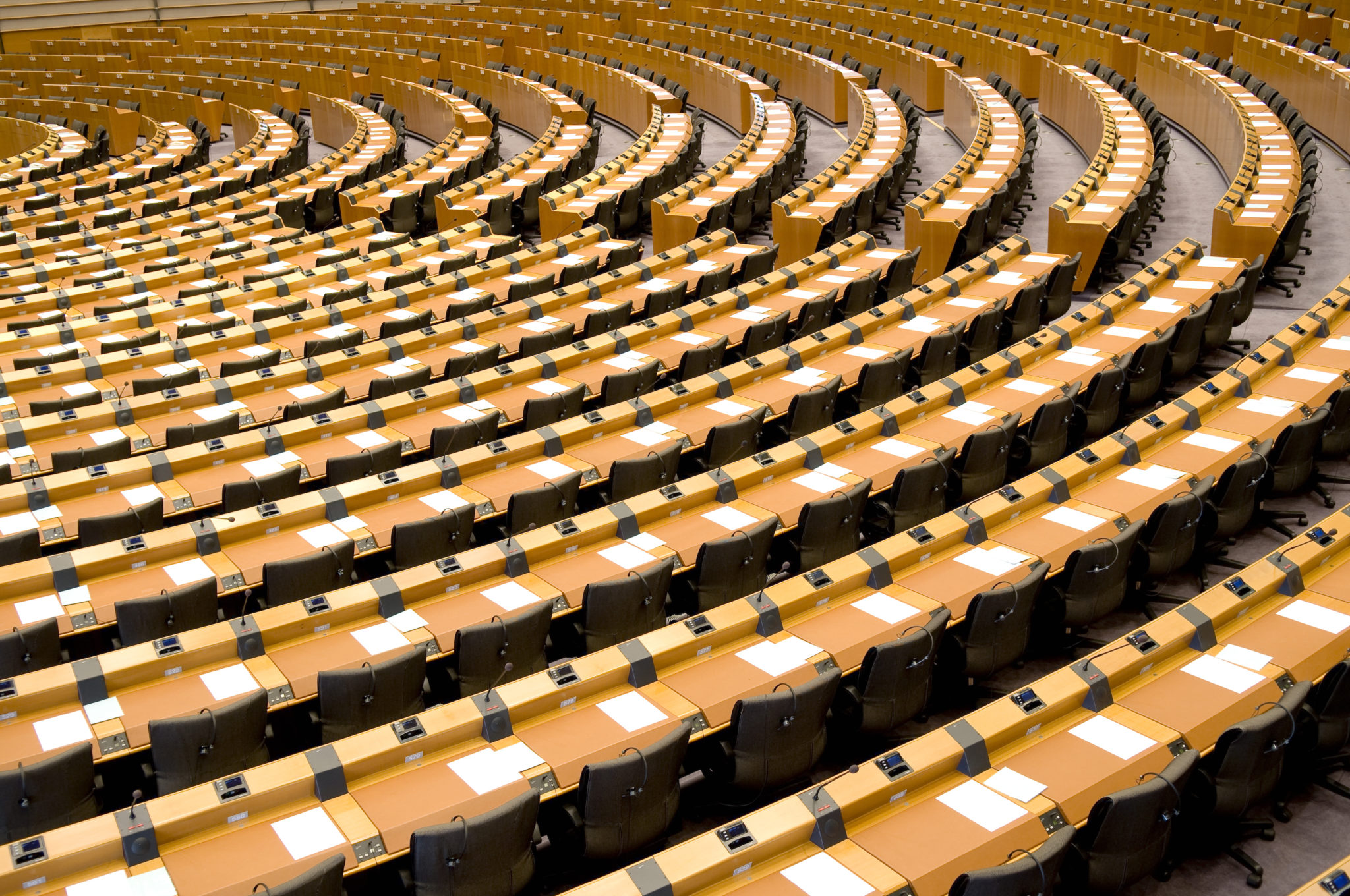Private copy levy system: how do recent developments in Spain compare with other EU jurisdictions?
Published on 9th March 2017

In a judgment given on 10 November 2016, the Spanish Supreme Court annulled the existing private copy levy system which replaced the previous “fee” system on all suitable devices.
We discuss this decision below, before asking how the position in Spain compares to other key European jurisdictions.
Background
On 9 December 2012, a new copyright levy system was set up that replaced the previous system whereby the private copy levy was operated via what was commonly known as a “fee”. This fee involved the application of a small surcharge on the price of “equipment, devices and material media suitable to perform said reproductions, manufactured in Spain or acquired abroad for its commercial distribution or use within Spain”
In March 2011, the Spanish High Court ruled in favour of the annulment of a 2008 Ministerial Order on the regulation of media equipment/devices/material upon whose price the so-called fee was applied. This system had been heavily criticised by the public and was seen as unfair towards consumers due to the indiscriminate application of the levy on all suitable media equipment/devices/material.
This repeal and the subsequent change to the system was carried out via a modification to Law 21/2014, of 4 November, modifying the consolidated text of the Spanish Copyright Law which stated that the private copy levy was to be funded “by the State General Budget, and shall be aimed at compensating the copyright royalties that will not be received as a consequence of the legal limitation of the private copy“.
Annulment decision
The decision declaring the annulment of the new system was sought by three collecting rights management entities and required a reference to the Court of Justice of the European Union (CJEU). The CJEU concluded that a system that established a private copy levy system funded by the General State Budget did not ensure that the cost of the private copy levy is borne by the actual users of the private copies. This decision was echoed by the Spanish Supreme Court, which declared that the system was incompatible with the relevant provision of Directive 2001/29/EC.
Therefore, the Spanish Supreme Court declared that Royal Decree 1657/2012 (which approved the private copy levy system that was funded by the State General Budget) was null and void for having been enacted without legal support, since Royal Decree 1657/2012 is an executive regulation developing a specific legal provision.
Consequences
The statement by the Spanish Supreme Court that the Royal Decree was enacted without legal support calls into question the legality of the private copy levies which have already been deducted from the General State Budget. For more on this case see here.
How does this compare to other EU jurisdictions?
Spain is not the only EU country in which the issue of private copying, and the compensation for it, has been controversial and subject to legal challenge. We look at the current position in some key EU jurisdictions.
The Netherlands
Kevin van ‘t Klooster, Associate in Osborne Clarke’s IT/IP team, says:
“The Dutch private copy levy system fundamentally changed after the 2014 ECJ case ACI v. Thuiskopie (C 435/12). As a result, a new decree was introduced on 28 October 2014 changing the private copying regulations and introducing a flat fee, which does not differentiate based on storage capacity, but based on objects. In 2015, the scope was broadened to also include e-readers. Current rates vary from, for example, €0.02 for a CD-r or DVD-r to €3.50 for a device such as a smartphone, tablets, PC, notebook or set-top box with a hard drive.”
UK
Abby Minns, Senior Associate in Osborne Clarke’s IP team, says:
“The situation has been similarly problematic in the UK. The UK did not initially introduce a private copying exception. However, in two independent reviews of the UK’s Intellectual Property system, the Gowers Review in 2006 and the Hargreaves Review in 2011, it was recommended that a private copying exception should be introduced. It was reasoned that this would reflect the behaviour of consumers, most of whom were not aware that it was unlawful to make copies of files to allow use on multiple devices. As a result, in October 2014, the UK Government introduced a private copying exception. Shortly after the exception came into force, a number of music industry stakeholders applied for a Judicial Review of the Government’s decision to introduce a private copying exception without a levy system. This judgment, handed down in 19 June 2015, found the exception to be unlawful under the InfoSoc Directive, since the evidence relied upon by the Government was insufficient to prove that no or de minimus harm would be caused by introducing the exception without a levy system. The UK government has since announced it is not currently intending to take further action to reintroduce a private copying exception.”
Germany
Tim Maiorino, Counsel in Osborne Clarke’s IT team, says:
“Germany has traditionally taken a rather strict approach to the issue of remunerating potential private copies on portable devices and other hardware. The first version of this scheme, stating the manufacturer’s, trader’s or importer’s obligation to pay the levy per device – for the then current private copy scenarios on devices – was introduced into the German Copyright Act in 1965. It has ever since been adapted to technological developments in terms of new devices, new file formats etc. The current rates vary depending on both the device and the copy potential, from EUR 0,062 per CD-R up to EUR 87 per laser multifunctional copy machines.
France
Lucile Beaupérin, Associate in Osborne Clarke’s IP/IT team, says:
“the private copy levy has been regulated in France since 1985 by the French Intellectual Property Code and is based on a “fee” system. The private copy levy is paid by consumers when buying recording devices and media, as part of the aggregate purchase price. The manufacturers and importers of these recording devices and media then pass the levy to COPIE FRANCE, an entity that was set up by collective management societies representing authors, publishers, performers and producers. COPIE then distributes this income collected to the seven relevant member collective management societies. The tariffs for this levy are set by the Private Copy Commission, an independent administrative body supervised by a State representative which comprises half representatives of levy’s beneficiaries and half representatives of manufacturers, importers and consumers associations. Like in Spain, private copy levy regulation has been very controversial in France. It has been subject to highly critical reports from consumers’ associations but also to several legal and administrative proceedings. In particular, on 17June 2011, the French Supreme Administrative Court (‘Conseil d’Etat’), in line with the ruling of the CJEU’s Padawan dated 21 October 2010, overruled a decision from the Private Copy Commission which did not provided for an exemption to the levy for recording devices acquired for professional purposes. As a consequence, COPIE FRANCE set up a reimbursement system of the levy when recording devices are acquired for strictly professional purposes.”
Belgium
Benjamin Docquir, Partner in Osborne Clarke’s IT/IP team, says:
“The Belgian reprography and private copy system has fundamentally been undergoing changes since the 2015 ECJ judgment HP v. Reprobel (C-572/13). The Court found this system to be unlawful under the InfoSoc Directive in many respects. First of all, the Court criticised the fact that under Belgian law the compensation for reprography and private copy is paid to both authors and publishers (‘éditeurs’), resulting in a dilution of the authors’ remuneration. In addition to this, based on reasoning that is similar to that in the Spanish case at hand, the Court found many reasons to conclude that the Belgian system was not compatible with the InfoSoc Directive, notably in that it did not provide for distinct compensation according to whether the copy was made for private purposes or for non-private purposes. As a result, a new piece of legislation was enacted on 22 December 2016. The new Act addresses the criticisms levelled by the Court and strikes a balance between the authors’ rights and the users’ interests. The new Belgian reprography/private copy system will rely on two different grounds for authors’ remuneration:
- copy made on paper or similar medium, by a professional end-user (company, library, public authority) for non-private use, will lead to a proportional compensation corresponding to the actual number of copies made ;
- private copy, covering every reproduction, regardless of the medium (paper or other), made for private use, will solely lead to fixed lump-sum remuneration;
The Act will also provide for distinct reprography remuneration for the benefit of editors when a copy is made from paper or similar medium to paper or similar medium. The date for entry into force of this Act needs to be determined in a Royal Decree but is currently set at 1 January 2018. This means that until that time, there is a standstill period. Payment will – for now – not be collected on any reproduction devices imported on the Belgian market after 1 January 2017. However, retro-active payment might be due, once the new system has been put into place.”
Italy
Michela Bandiera, Associate in Osborne Clarke’s Competition team, says:
“In Italy, private copying is allowed on any media carried out by a natural person only for personal use. The rightholders (of audio and video works) are entitled to receive a compensation in the form of a levy for equipment, devices and media suitable for copying protected works and other material. Such compensation consists of a percentage of the price paid by the final purchaser to the retailer and is paid to SIAE (the Italian body in charge of distributing the collected sums to rightholders) by manufacturers and importers on their sales of such equipment, devices and media. The rules for calculating the compensation are set by decree of the Ministry of cultural assets and activities and tourism (“Mibact”), subject to a three-yearly review. A first decree was adopted in 2009 and was contested before the Administrative Tribunal (of first instance) by the main manufacturers and retailers of devices and equipment. They claimed that the decree was contrary to EU law, amongst other reasons, on account of the private copying levy for persons acting for purposes clearly unrelated to private copying (i.e. legal persons and persons engaged in professional activities). They also contested the system for
- the ex-ante exception (in the event of professional use) allowing SIAE to promote protocols in agreement with the person obliged to pay the compensation; and
- the reimbursement mechanism of that levy as set forth by the decree.
The Tribunal dismissed those actions, but the parties appealed before the Upper Court (‘Consiglio di Stato’), which decided to stay the proceeding and asked for preliminary ruling the CJEU. Pending those proceedings, a second decree (updating the previous one) was adopted by Mibact in September 2014, and immediately the biggest companies in the industry appealed also against the new decree before the Administrative Tribunal (still pending). On 22 September 2016, the CJEU ruled that national legislation, such as that at issue in the main proceedings, cannot subject exemptions to the conclusion of agreements between an entity which has a legal monopoly on the representation of the interests of authors of works (SIAE) and those liable to pay compensation. The CJEU further ruled that the reimbursement of such a levy, where it has been unduly paid, may be requested only by the final user of those devices and media. It is too early to see the impact of such ruling on the Italian private copying, which is however undoubtedly under attack. We will see in the coming months what the Consiglio di Stato will decide following the CJEU’s ruling and whether or not a review of the whole system will be adopted by the Italian Parliament”.



